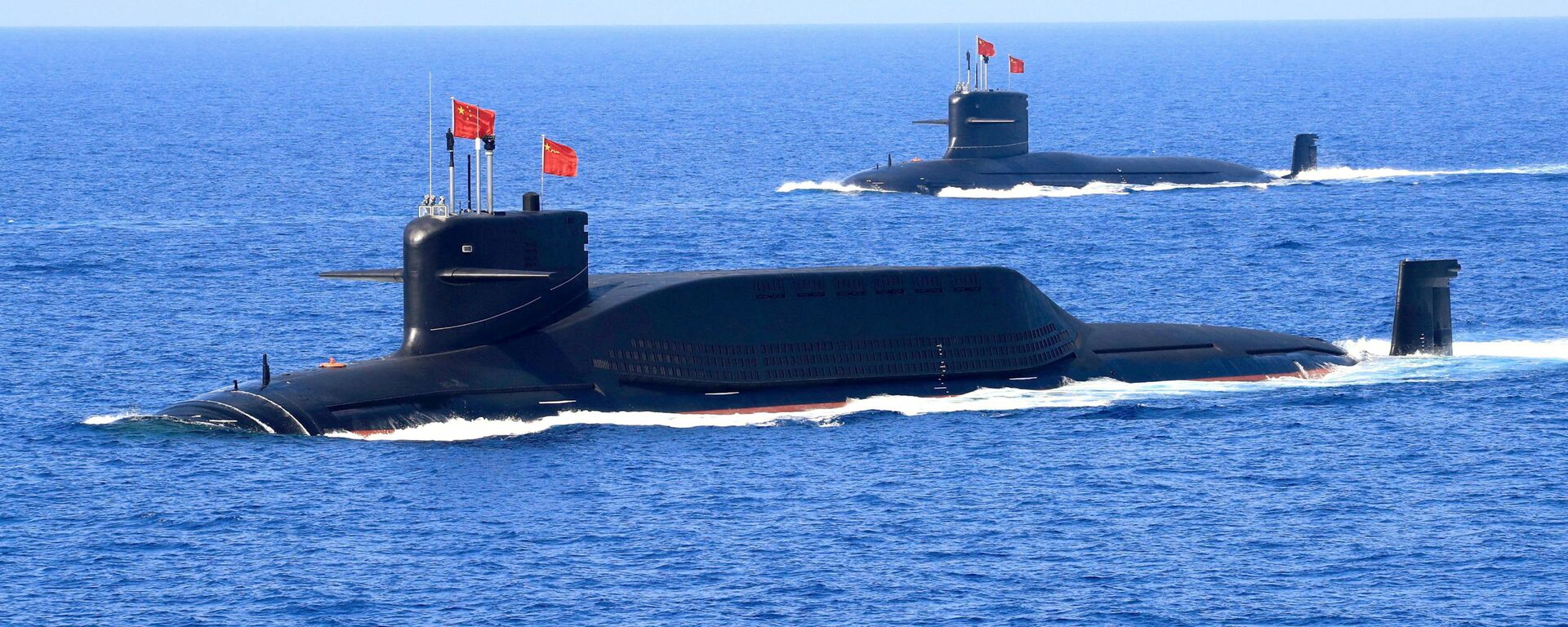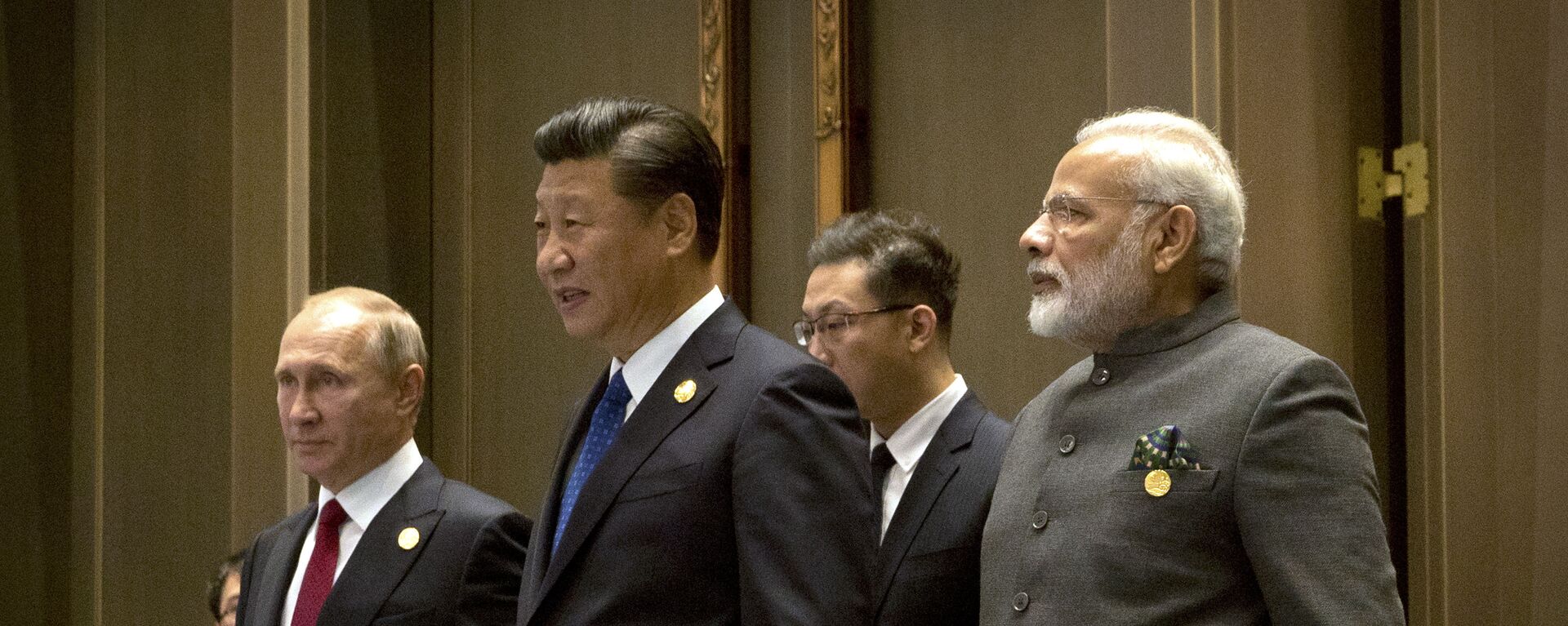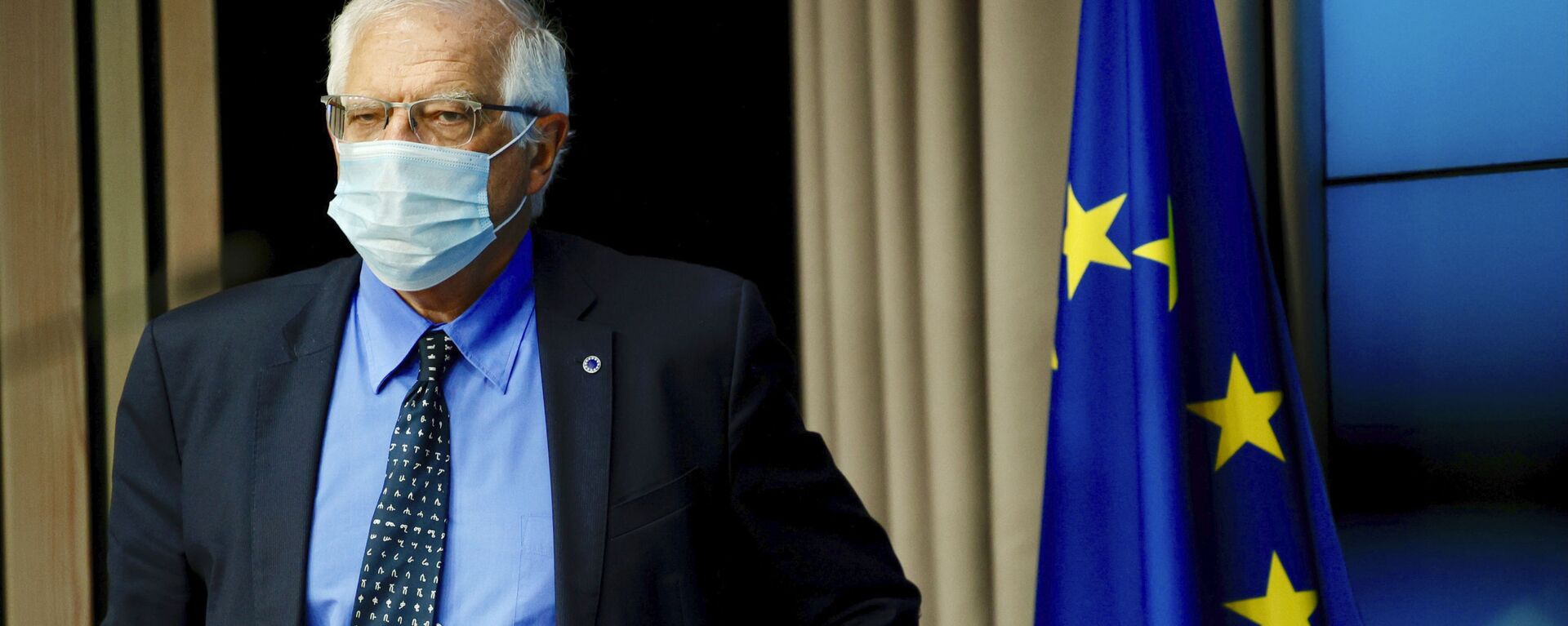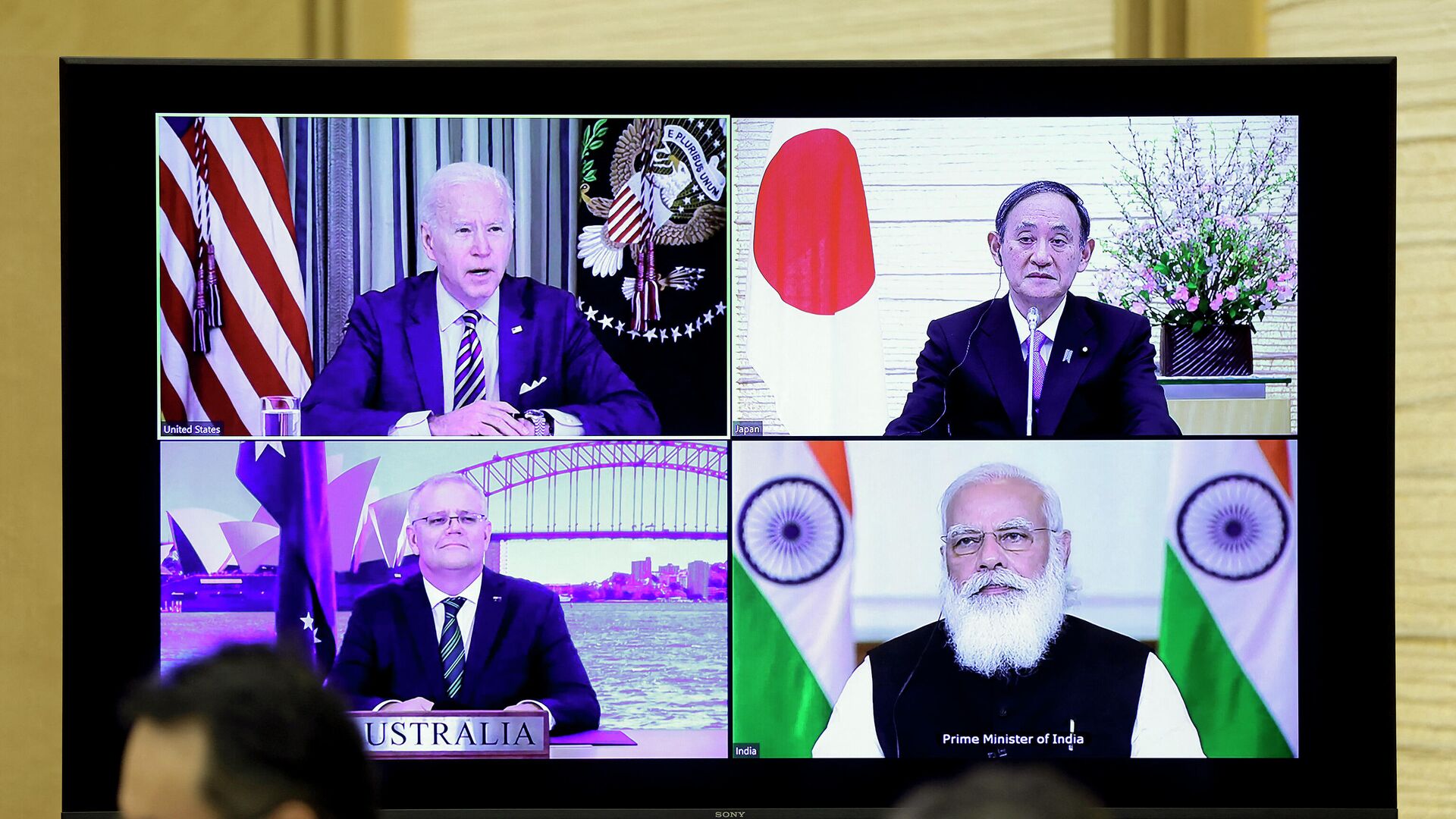https://sputnikglobe.com/20210921/an-unpredictable-ally-does-the-aukus-pact-undermine-the-quads-significance-1089264886.html
‘An Unpredictable Ally’: Does the AUKUS Pact Undermine the Quad's Significance?
‘An Unpredictable Ally’: Does the AUKUS Pact Undermine the Quad's Significance?
Sputnik International
Indian Foreign Secretary Harsh Vardhan Shringla on Tuesday said the AUKUS pact doesn't undermine the "Quad". His reaction came as a response to mounting... 21.09.2021, Sputnik International
2021-09-21T19:14+0000
2021-09-21T19:14+0000
2022-07-19T10:39+0000
joe biden
asia
china
australia
quadrilateral security dialogue (quad)
indo-pacific
aukus
aukus
https://cdn1.img.sputnikglobe.com/img/07e5/09/0e/1089054014_0:0:3071:1728_1920x0_80_0_0_2e891feae8049bfa5f2cf23cfda27442.jpg
The AUKUS trilateral security pact among Australia, the UK, and the US has sparked concerns in India about the relevance of the "Quadrilateral Security Dialogue," a four-nation grouping advocating for a free and open Indo-Pacific region and upholding the UN Convention on the Law of the Sea (UNCLOS).As per a report in theEnglish daily Times of India, US Defence Secretary Lloyd Austin on Monday told his Indian counterpart Rajnath Singh that the AUKUS pact will neither impact Washington’s existing bilateral engagement with India or cooperation in multilateral groupings such as the Quad. Singh reportedly told Austin that India was “studying” the new trilateral arrangement.The reaction from New Delhi, which the US describes as its key Indo-Pacific ally, comes ahead of the first-ever in-person Quad summit set to take place at the White House on 24 September.The announcement of the new AUKUS pact, as part of which Australia will get ballistic missile submarines (SSBNs), jointly developed with the US and the UK, has once again stoked concerns about the “unpredictability” of the US as an ally, amid increasing close defence and economic ties between the two democracies under Prime Minister Narendra Modi since 2014.The US decision to enter into the AUKUS pact with Australia creates further complications for the Washington-Delhi bilateral relationship, as the Americans have remained non-committal on supplying India with nuclear propulsion technology for submarines or aircraft carriers.Baru went on to underline the “geopolitical activism” of India of late, pointing out Prime Minister Narendra Modi’s attendance at the Shanghai Cooperation Organisation (SCO) leaders’ meeting and the BRICS summit in recent weeks, as well as the Indian Foreign Minister Subrahmanyam Jaishankar’s bilateral meetings in recent months with his counterparts from China, Russia, and Iran.Baru also says that the view in the Indian foreign policy establishment that New Delhi should now enter a full-fledged alliance with the US amid the security and economic threat from China was “ill-advised," adding, “India will continue to have a mind of its own.”Baru argues that rather than “bi-polarity” between the ‘US-led Anglosphere’ and ‘Sinosphere’, the world is moving toward “bi-multipolarity”, a concept where “middle powers” such as India, Russia, France, Japan, and Germany may align their interests with either the US or China while continuing to have differences with the leading bloc power at the same time.The sobering assessment of India-US ties comes amid sharp criticism of Washington by other prominent foreign policy pundits, who say that the US has diluted the Quad's significance and has driven a wedge in the Indo-Pacific alliance through its AUKUS pact.Counterview: AUKUS ‘Enhances’ Quad’s Capability, Argues Australian ExpertPradeep Taneja, a professor of international relations at the University of Melbourne and a fellow at the Australia-India Institute (AII), on the other hand, contends that the AUKUS pact “enhances” the capability of the Quad navies.“From India’s point of view, this will be a good thing,” he argues.He points out that both the AUKUS and the Quad have a common thread involved, with both the groupings being formed to “counter China’s policies in the region.”The Australian academic further notes that the AUKUS pact further boosts the US’ Indo-Pacific strategy by giving a greater role to the United Kingdom (UK).He also rejects criticism that the AUKUS has created a divide between the EU and the US despite the European Union expressing support for France’s position.“France also has a strategic interest in the Indo-Pacific Ocean. It has the second largest territory in the Indo-Pacific region, both in the Indian and the Pacific Oceans,” Taneja points out.
https://sputnikglobe.com/20210918/india-keeping-all-options-open-as-china-could-share-nuke-submarines-with-pakistan-says-navy-veteran-1089178775.html
https://sputnikglobe.com/20210909/brics-india-pledges-to-boost-trade-tech-ties-with-china-amid-ladakh-border-standoff-1088911089.html
https://sputnikglobe.com/20210920/borrell-expresses-regrets-that-eu-countries-were-not-invited-to-join-aukus-1089253604.html
china
australia
indo-pacific
Sputnik International
feedback@sputniknews.com
+74956456601
MIA „Rosiya Segodnya“
2021
News
en_EN
Sputnik International
feedback@sputniknews.com
+74956456601
MIA „Rosiya Segodnya“
Sputnik International
feedback@sputniknews.com
+74956456601
MIA „Rosiya Segodnya“
joe biden, china, australia, quadrilateral security dialogue (quad), indo-pacific, aukus
joe biden, china, australia, quadrilateral security dialogue (quad), indo-pacific, aukus
‘An Unpredictable Ally’: Does the AUKUS Pact Undermine the Quad's Significance?
19:14 GMT 21.09.2021 (Updated: 10:39 GMT 19.07.2022) Indian Foreign Secretary Harsh Vardhan Shringla on Tuesday said the AUKUS pact doesn't undermine the "Quad". His reaction came as a response to mounting criticism in the South Asian nation about the US commitment toward the four-nation grouping (Quad) since the unveiling of the trilateral "Anglosphere" deal last week.
The
AUKUS trilateral security pact among Australia, the UK, and the US has sparked concerns in India about the relevance of the "Quadrilateral Security Dialogue," a four-nation grouping advocating for a free and open Indo-Pacific region and upholding the UN Convention on the Law of the Sea (UNCLOS).
As per a report in theEnglish daily Times of India, US Defence Secretary Lloyd Austin on Monday told his Indian counterpart Rajnath Singh that the AUKUS pact will neither impact Washington’s existing bilateral engagement with India or cooperation in multilateral groupings such as the Quad.
Singh reportedly told Austin that India was “studying” the new trilateral arrangement.

18 September 2021, 08:05 GMT
The reaction from New Delhi, which the US describes as its key Indo-Pacific ally, comes ahead of the first-ever in-person Quad summit set to take place at the White House on 24 September.
The announcement of the new AUKUS pact, as part of which Australia will get ballistic missile submarines (SSBNs), jointly developed with the US and the UK, has once again stoked concerns about the “unpredictability” of the US as an ally, amid increasing close defence and economic ties between the two democracies under Prime Minister Narendra Modi since 2014.
The US decision to enter into the AUKUS pact with
Australia creates further complications for the Washington-Delhi bilateral relationship, as the Americans have remained non-committal on supplying India with nuclear propulsion technology for submarines or aircraft carriers.
Sanjaya Baru, a former advisor to ex-Indian Prime Minister Manmohan Singh (2004-2014), has told Sputnik that India has been already “hedging its bets against future US unpredictability” in the wake of “the Americans' ignominious retreat” from Afghanistan and the increased terror threat perception the decision created for New Delhi.
Baru went on to underline the “geopolitical activism” of India of late, pointing out Prime Minister Narendra Modi’s attendance at the Shanghai Cooperation Organisation (SCO) leaders’ meeting and the BRICS summit in recent weeks, as well as the Indian Foreign Minister Subrahmanyam Jaishankar’s bilateral meetings in recent months with his counterparts from China, Russia, and Iran.
“India has finally come around to the view of the fast-changing world of the 21st century and is spreading its risks,” the ex-PM aide says, while warning against the perils of “putting all the eggs in one basket.”
Baru also says that the view in the Indian foreign policy establishment that New Delhi should now enter a full-fledged alliance with the US amid the security and economic threat from China was “ill-advised," adding, “India will continue to have a mind of its own.”
Baru argues that rather than “bi-polarity” between the ‘US-led Anglosphere’ and ‘Sinosphere’, the world is moving toward “bi-multipolarity”, a concept where “middle powers” such as India, Russia, France, Japan, and Germany may align their interests with either the US or China while continuing to have differences with the leading bloc power at the same time.

9 September 2021, 11:15 GMT
The sobering assessment of India-US ties comes amid sharp criticism of Washington by other prominent foreign policy pundits, who say that the US has diluted the Quad's significance and has driven a wedge in the Indo-Pacific alliance through its AUKUS pact.
Counterview: AUKUS ‘Enhances’ Quad’s Capability, Argues Australian Expert
Pradeep Taneja, a professor of international relations at the University of Melbourne and a fellow at the Australia-India Institute (AII), on the other hand, contends that the AUKUS pact “enhances” the capability of the Quad navies.
“If Australia has an enhanced capacity to patrol the waters of the Indo-Pacific region, not only around Australia but also in the South and East China Seas and the Indian Ocean, then that will be good for the Quad. It will enhance the overall capacity of the Quad countries,” states the Australian academic.
“From India’s point of view, this will be a good thing,” he argues.
He points out that both the AUKUS and the Quad have a common thread involved, with both the groupings being formed to “counter China’s policies in the region.”
The Australian academic further notes that the AUKUS pact further boosts the US’ Indo-Pacific strategy by giving a greater role to the United Kingdom (UK).

20 September 2021, 21:19 GMT
He also rejects criticism that the AUKUS has created a divide between the EU and the US despite the European Union expressing support for France’s position.
“While France has a reason to be aggrieved about this decision, but, once the dust settles, France will continue to participate in the Indo-Pacific strategy. France wasn’t doing anyone a favour by participating in the Indo-Pacific strategy. It was doing it because of its own interests,” reminds Taneja.
“France also has a strategic interest in the Indo-Pacific Ocean. It has the second largest territory in the Indo-Pacific region, both in the Indian and the Pacific Oceans,” Taneja points out.







